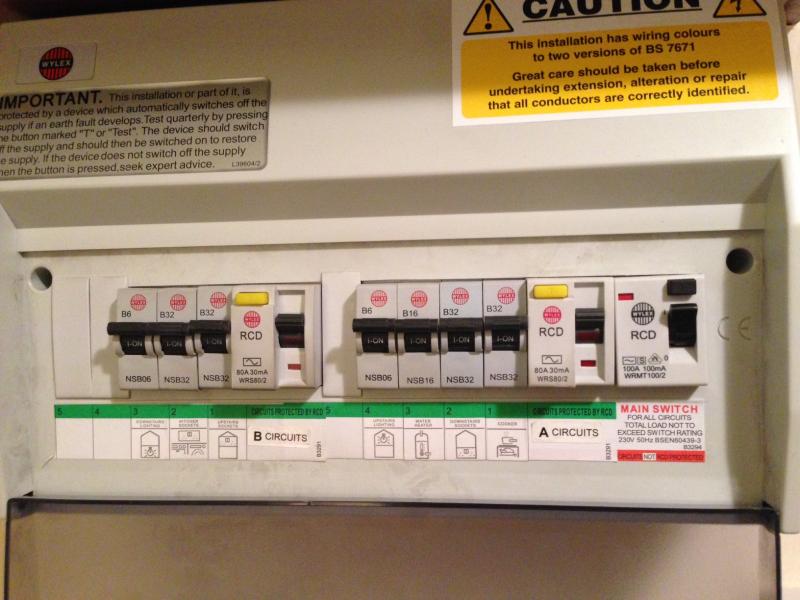Hi folks,
I've had a read through the forum and the answer to my question seems to be "yes", but I thought I'd ask to be sure.
The RCD in my house tripped repeatedly today (4-5 times per session) when the neighbour was sanding his floors using some kind of power tool. Is it possible that his power tools are causing my RCD to trip? I know his RCD isn't tripping because his sanding continues uninterrupted. I have a jigsaw myself which has tripped my RCD in the past but only when connected to a certain socket.
The RCD had been tripping occasionally (once or twice a week) over the last few weeks while the dishwasher was on and I was beginning to suspect a dodgy looking dishwasher element but due to the frequency of the trips today I'm now suspecting my neighbour.
My house was rewired a few years ago (not sure how recently exactly, it was done before I moved here). The house has overhead power and TT earth (which is buried into the ground next to the front door).
I've attached a picture of the consumer unit showing the 30mA RCDs for each of circuit A and B, as well as the 100mA RCD for the full house. Note that the 30mA RCDs do not trip and it's the 100mA one which always needs reset.
So, my question to all of you experts is: could the neighbour be tripping my RCD and does this mean I have a dodgy RCD? Is it odd that the 100mA trips but the 30mA doesn't?
Thanks,
Chris
I've had a read through the forum and the answer to my question seems to be "yes", but I thought I'd ask to be sure.
The RCD in my house tripped repeatedly today (4-5 times per session) when the neighbour was sanding his floors using some kind of power tool. Is it possible that his power tools are causing my RCD to trip? I know his RCD isn't tripping because his sanding continues uninterrupted. I have a jigsaw myself which has tripped my RCD in the past but only when connected to a certain socket.
The RCD had been tripping occasionally (once or twice a week) over the last few weeks while the dishwasher was on and I was beginning to suspect a dodgy looking dishwasher element but due to the frequency of the trips today I'm now suspecting my neighbour.
My house was rewired a few years ago (not sure how recently exactly, it was done before I moved here). The house has overhead power and TT earth (which is buried into the ground next to the front door).
I've attached a picture of the consumer unit showing the 30mA RCDs for each of circuit A and B, as well as the 100mA RCD for the full house. Note that the 30mA RCDs do not trip and it's the 100mA one which always needs reset.
So, my question to all of you experts is: could the neighbour be tripping my RCD and does this mean I have a dodgy RCD? Is it odd that the 100mA trips but the 30mA doesn't?
Thanks,
Chris



